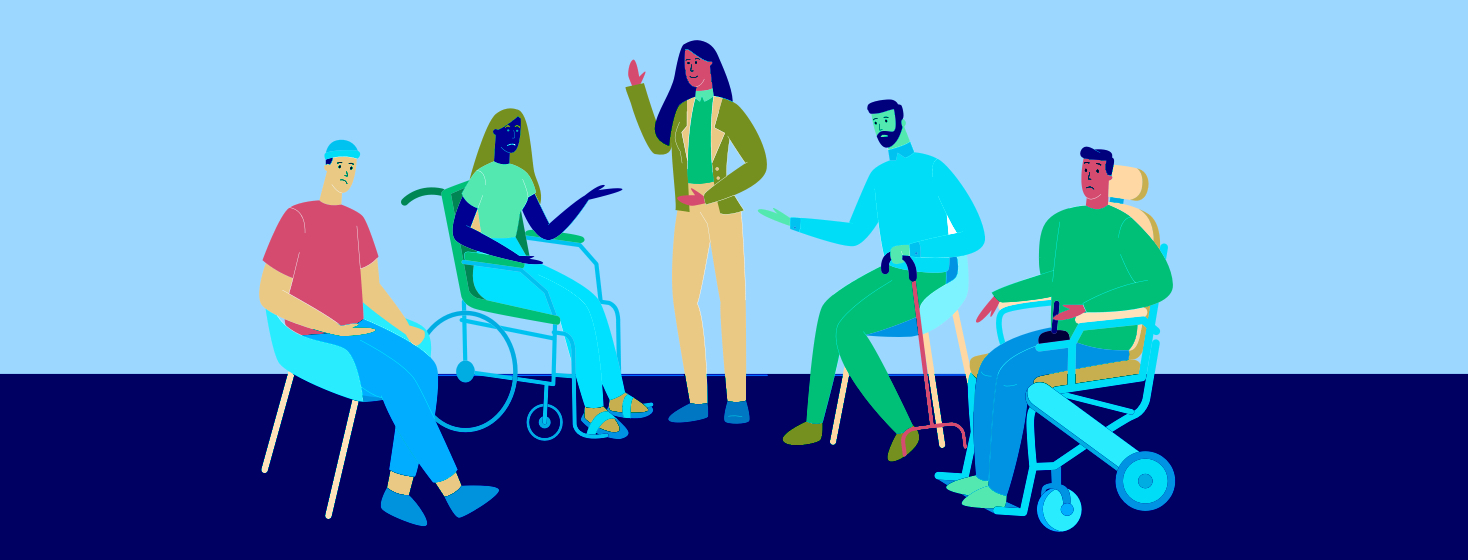Not My Type of MS
I receive a steady stream of MS news items. Unfortunately, almost none of it applies to me. I do have MS, just not that type of MS. I am the Titanic passenger, wandering the sinking ship as if in purgatory, always being told, “This lifeboat is not for you. Go find another.”
I have the rare type of MS
The majority of people with MS are diagnosed with the relapsing-remitting type (RRMS). About 15 percent are diagnosed with primary progressive MS (PPMS). That’s my type. For more information on the various manifestations of MS, click here.1
What’s the deal with PPMS? First, because PPMS is less common than RRMS, we are often overlooked when it comes to research and treatment. Second, PPMS patients can often have worse outcomes than RRMS patients, regardless of treatment. It’s a double whammy.2
Sometimes, well-intentioned friends or relatives don’t know about this difference in MS subtypes, and the conversation goes something like this:
“It seems like they come out with more and better treatments for MS every year.”
“Yes, that is great news. But it doesn’t apply to my type of MS.”
Then there is an awkward silence; then we talk about something else.
As of this writing, the FDA has approved at least a dozen disease-modifying treatments for RRMS. There is but a single drug (ocrelizumab) approved for PPMS, and it doesn’t work very well for advanced patients like me. So, while the relapsing community has treatment choices, the progressive community waits patiently — or sometimes impatiently — for our turn.3,4
Why has PPMS taken the backseat?
What drives this disparity in treatment options? One could argue that society’s resources should be allocated to help the most people — RRMS folks in this case. I agree, in principle. However, in practice, this translates to pharmaceutical companies allocating their research dollars to the treatments that will make them the most money. When I look at it that way, it feels less like social pragmatism and more like corporate greed. But that's an essay for another day.
Another reason there are so many more treatments for RRMS than PPMS is that PPMS seems to be a more difficult problem to solve. Even if both types had received equal attention in the laboratory, I feel PPMS would still lag in the number of treatments developed.
RRMS is no walk in the park
None of the treatments for RRMS comes even close to curing the disease, so although the choices are relatively broad compared to those of us with PPMS, it’s not as if RRMS folks are dancing in the streets. Furthermore, within 10 to 20 years of diagnosis, RRMS people often progress to secondary progressive MS (SPMS), which can be similar to PPMS.5
There is some good news. Today, PPMS is finally getting more attention from the research and treatment communities. I appreciate the effort, but I long for results — for a real treatment.
I don’t wait idly, however. I do what I can to improve my life.
The Internet knows everything about me
Because I have almost no use of my arms or legs, I’ve automated my smartphone, computer, lights, shades, televisions, doors, etc. with voice controls. As a result, my personal information is tracked, cataloged, analyzed, bought, and sold by Amazon, Windows, Google, and Apple, none of whom I can manage without. They all know I have MS, and my newsfeeds are adjusted accordingly. To guard against disappointment, I maintain low expectations. Whenever I see a headline with good news about MS research, I assume it doesn’t have anything to do with PPMS, so I won’t be disappointed when I read it.
Except, I am disappointed. I exert some control over my expectations, but they refuse to be tamed. Sometimes, these petulant hopes rise, only to fall harder in the end.
It’s complicated to be part of a minority subtype. I am at once happy for RRMS patients and envious of them, like the orphan child left behind as one friend after another is selected to go home with a nice family. Such is life for those of us with primary progressive multiple sclerosis.
Life with PPMS: I dream of a cure
There is one circumstance that would change the outlook for people with PPMS. What if PPMS became the first form of the disease to be cured? Although I would feel bad for my brothers and sisters with RRMS or SPMS, I wouldn’t be the guy inside his smart home, conversing with his smart devices. Instead, I would be the weird guy in front of his house, dancing in the street.

Join the conversation